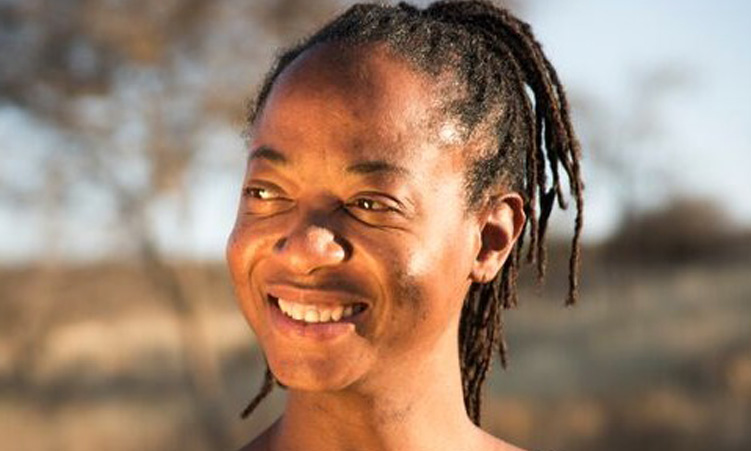In 2015, Hage Geingob became Namibia’s third president with an overwhelming electoral majority.
The reason he won the presidency with more than 80% of the votes is because the Namibian people were hopeful he would be the right person to put in place measures and policies that would improve their living conditions.
That is because the late president was a strong supporter of poverty eradication policies, especially that of a Basic Income Grant, also known as BIG, which had been initially suggested to former president Hifikepunye Pohamba by his own Namibia Tax Consortium (Namtax).
At the launch of the Otjivero BIG Pilot Project in 2008, Geingob was the first person to pledge money towards the pilot study.
On several occasions after that he called for the implementation of a BIG as a measure to fight poverty.
When he was the minister of trade and industry in 2011, Geingob said given all the natural resources Namibia was endowed with, the country could afford a BIG as a means to help eradicate poverty.
MINISTRIES AND POLICIES
When he became president, Geingob established a whole Ministry of Poverty Eradication which was headed by the former BIG Coalition of Namibia chairperson, Bishop Zephania Kameeta.
This was an indication he was serious about what he had promised in his inaugural speech: He declared war on poverty and said he wanted to ensure that no one would be left out.
During Geingob’s second term, the ineffective Ministry of Poverty Eradication was dismantled and integrated into the Ministry of Gender Equality and Social Welfare, which was changed to the Ministry of Gender Equality, Poverty Eradication and Social Welfare.
During the late president’s tenure, the ministry of gender equality published a Social Protection Policy 2021-2030, which recognised the shortcomings in existing poverty eradication measures and the need to expand the coverage of social protection programmes in order to make an impact.
Instead, Geingob continuously increased the universal old-age pension grant.
However, there was no such lifeline for the majority of Namibians grappling with poverty.
It should be noted that the universal old-age pension has made a dent in poverty eradication measures: It reached more than 90% of pensioners who in turn support many relatives who depend on them financially.
That is something for which the late president can be applauded.
Unfortunately, it was not enough to realise his dream of eradicating poverty.
FOOD BANKS AND GRANTS
By the time Geingob became president in 2015, Namibia had a poverty rate of 59%.
In 2022, the number of people affected by poverty was 1,6 million, according to the World Bank as published in The Namibian that year.
Yet, little was done to remedy the situation as Namibians continued to struggle for survival.
What Geingob’s administration did do was to give about 700 000 Namibians a once-off emergency income grant (EIG) of N$750 to help jump-start the economy to cushion the economic impact of the Covid-19 pandemic.
As someone who continuously advocated for the implementation of a BIG as a poverty eradication measure before becoming president, the late Geingob instead used a Food Bank programme.
This was set up to help needy and vulnerable community members with food rations under the gender equality, poverty eradication and social welfare ministry.
Later during his tenure, the programme was converted into what we term the Harambee Cash Grant of N$600 per household a month which targeted a limited number of people of whom there were reportedly about 29 000.
It was a drop in the ocean given that an estimated 1,6 million people live in poverty.
The Food Bank was later deemed ineffective by the auditor general, hence its conversion into a Harambee cash grant.
It also came under fire for being discriminatory as the majority of Namibians who needed government support were left out; those well connected to local councillors benefited.
BIG WOULD HAVE MADE A DIFFERENCE
One of the most cost-efficient ways through which the late president Geingob could have achieved his poverty eradication promise would have been to implement a universal BIG.
It would have made a dent in poverty eradication just as the universal old-age pension grant has done.
Many Namibians continue to live in dire poverty with the media reporting regularly on how it affects Namibian children: Malnutrition continues to be one of the leading causes of death among children under the age of five years old.
The number of people frequenting rubbish dumps and bins remains a common sight in Namibia.
At the same time, rising food prices continue to impact poor Namibian families.
Given the current situation, it is difficult to see how the late president won his war against poverty.
Despite his good intentions, it is unfortunate that the late president Geingob did not achieve his poverty eradication dream.
It is our hope that the current administration will pick up where the late president Geingob left off in his fight against poverty eradication.
- * Rinaani Musutua is a social justice advocate.
Stay informed with The Namibian – your source for credible journalism. Get in-depth reporting and opinions for
only N$85 a month. Invest in journalism, invest in democracy –
Subscribe Now!






